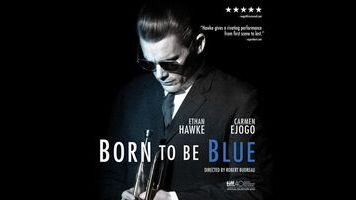Ethan Hawke sustains the Chet Baker “anti-biopic” Born To Be Blue

A variation on the theme of Chet Baker: Robert Budreau’s Born To Be Blue takes some lesser-known points from the life of the junkie cool jazz icon (an aborted movie project with Italian producer Dino De Laurentiis, the half-dozen forgotten albums he cut for World Pacific in 1966, etc.) and reworks them into a fantasy anti-biopic. It’s more conventional than it seems at first, opening with swipes at the phoniness of birth-to-death musician biopics—via a black-and-white film-within-the-film—before indulging in some phoniness of its own. But while there isn’t much to distinguish Born To Be Blue’s dramatic stakes from any number of stories about self-destructive, self-centered artists (or “movies about jazz musicians,” as they’re more commonly known), the film is given a spark of life by the inspired casting of Ethan Hawke. The actor may not look a lick like Baker, but his weathered pretty-boy face fits the troubled trumpeter-vocalist’s legend to a T; in a delicate performance, he emotes subtle notes of tragedy and manipulation through a wheezy, upper-register voice.








































